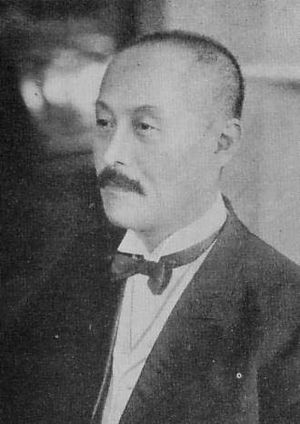Pak Chesoon facts for kids
Quick facts for kids
Pak Che-soon
|
|
|---|---|

Pak Che-soon
|
|
| Prime Minister of Korea | |
| In office 28 November 1905 – 1907 |
|
| Monarch | |
| Preceded by | Han Kyu-seol |
| Succeeded by | Lee Wan-yong |
| In office 1909 – 11 August 1910 |
|
| Monarch | Sunjong |
| Preceded by | Lee Wan-yong |
| Succeeded by | Lee Wan-yong |
| Personal details | |
| Born | 7 December 1858 Yongin, Gyeonggi, Korea |
| Died | June 20, 1916 (aged 57) Keijo, Japanese Korea |
| Occupation | Korean politician |
| Pak Che-soon | |
| Hangul |
박제순
|
|---|---|
| Hanja | |
| Revised Romanization | Bak Jesun |
| McCune–Reischauer | Pak Chesun |
| Art name | |
| Hangul |
평재
|
| Hanja | |
| Revised Romanization | Pyeongjae |
| McCune–Reischauer | P'yŏngjae |
Pak Che-soon (Korean: 박제순; Hanja: 朴濟淳; December 7, 1858 – June 20, 1916) was an important Korean politician and diplomat. He lived during the end of the Joseon dynasty, which was Korea's last kingdom. His special pen name was Pyeongjae. Today, in South Korea, he is known as one of the "Five Eulsa Traitors." This name is given to people who are seen as having betrayed their country. They are remembered for their role in Japan taking control of Korea in 1905.
Contents
Pak Che-soon's Early Life
Pak Che-soon was born in Yongin, a city near Seoul. His father worked for the government, though in a smaller role. His family's clan name was Bannam.
Becoming a Government Official
In 1883, Pak Che-soon passed the Korean Imperial Examination. This was a very difficult test that people had to pass to get a job in the government. After passing, he was sent to Tianjin, a city in China.
Key Roles and Treaties
On October 9, 1898, Pak Che-soon became the Foreign Minister of Korea. This meant he was in charge of Korea's relationships with other countries.
The Eulsa Treaty
In 1905, while he was Foreign Minister, he signed the Japan–Korea Treaty of 1905. This treaty is also called the "Eulsa Treaty." It was a very important and sad moment for Korea. The treaty took away Korea's right to deal with other countries on its own. It made Korea a "protectorate" of the Empire of Japan. This meant Japan had a lot of control over Korea's affairs.
Becoming Prime Minister
After signing the treaty, on November 28, 1905, Pak Che-soon became a Minister of State. He served as the Prime Minister of the Korean Empire twice. His first time was from 1905 to 1907. He served again from 1909 to 1910.
The Annexation Treaty
From 1907 to 1910, Pak Che-soon also worked as the Minister of the Interior. In this role, he worked under another important official named Ye Wanyong. During this time, he signed another very important document. This was the Japan–Korea Treaty of 1910. This treaty officially made Korea a part of the Empire of Japan. This event is known as the "annexation" of Korea by Japan.
Later Life and Legacy
After Korea became part of Japan, Pak Che-soon received special recognition from the Japanese government. On October 16, 1910, he was given the title of Viscount (shishaku). This was a special noble title in Japan. He also got a seat in the House of Peers, which was part of Japan's parliament. Later, he worked for the Central Advisory Institute. This was a group that advised the Government-General of Korea, which was Japan's ruling body in Korea.
What Happened After?
In 2005, South Korea passed a special law. This law was made to take back property from people who had helped Japan when Korea was annexed. Because of this law, the South Korean government took back property from the families of nine people. Pak Che-soon was one of these people.
Awards and Recognition
Pak Che-soon received several awards during his lifetime:
 Korean Empire Order of the Taegeuk 3rd Class on April 22, 1900
Korean Empire Order of the Taegeuk 3rd Class on April 22, 1900 Kingdom of Belgium Royal Order of the Lion 3rd Class on October 26, 1901
Kingdom of Belgium Royal Order of the Lion 3rd Class on October 26, 1901
See also
- Special law to redeem pro-Japanese collaborators' property
- List of prime ministers of Korea
- Lee Wan-yong
 | Valerie Thomas |
 | Frederick McKinley Jones |
 | George Edward Alcorn Jr. |
 | Thomas Mensah |

